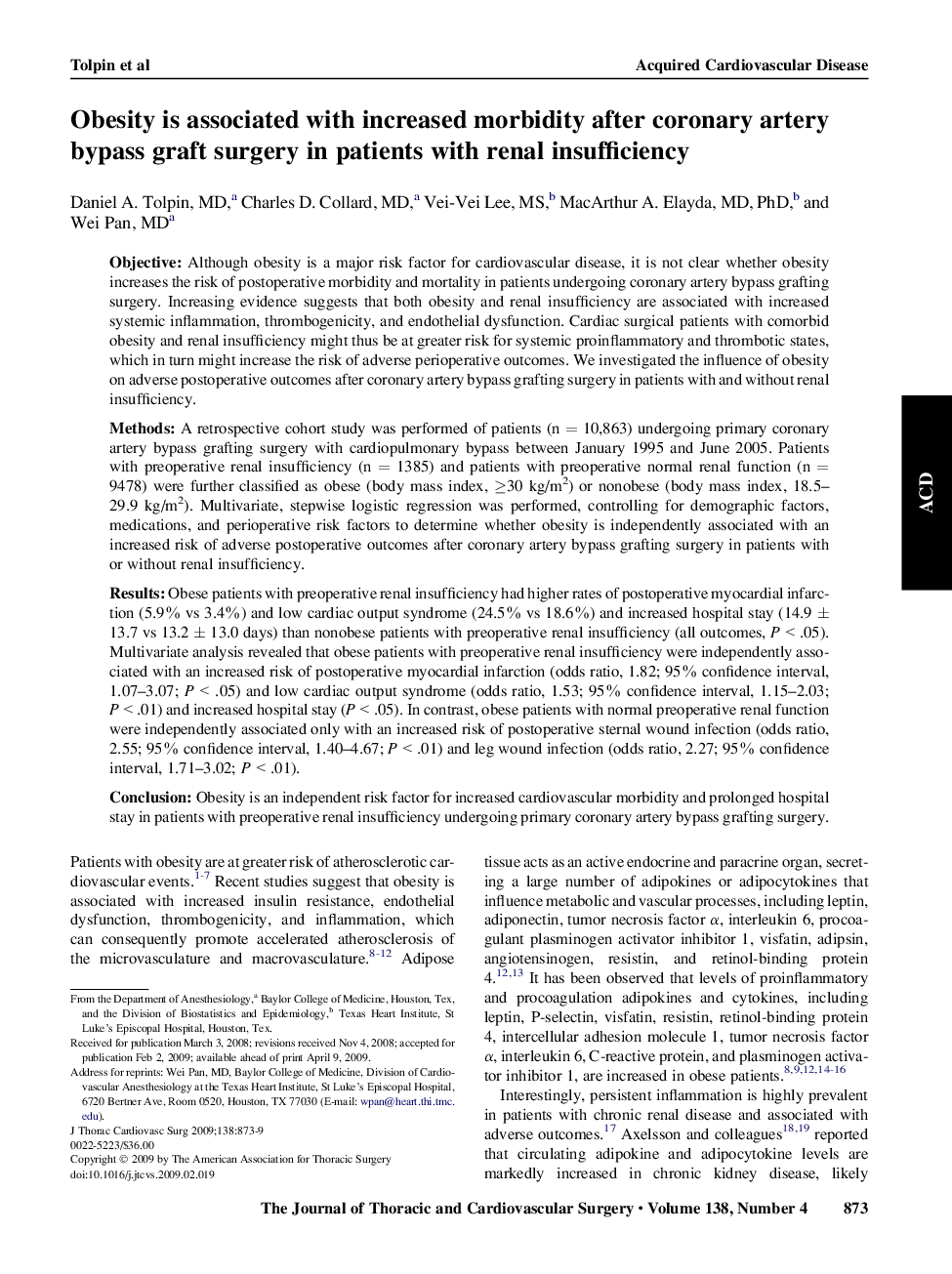| Article ID | Journal | Published Year | Pages | File Type |
|---|---|---|---|---|
| 2982085 | The Journal of Thoracic and Cardiovascular Surgery | 2009 | 7 Pages |
ObjectiveAlthough obesity is a major risk factor for cardiovascular disease, it is not clear whether obesity increases the risk of postoperative morbidity and mortality in patients undergoing coronary artery bypass grafting surgery. Increasing evidence suggests that both obesity and renal insufficiency are associated with increased systemic inflammation, thrombogenicity, and endothelial dysfunction. Cardiac surgical patients with comorbid obesity and renal insufficiency might thus be at greater risk for systemic proinflammatory and thrombotic states, which in turn might increase the risk of adverse perioperative outcomes. We investigated the influence of obesity on adverse postoperative outcomes after coronary artery bypass grafting surgery in patients with and without renal insufficiency.MethodsA retrospective cohort study was performed of patients (n = 10,863) undergoing primary coronary artery bypass grafting surgery with cardiopulmonary bypass between January 1995 and June 2005. Patients with preoperative renal insufficiency (n = 1385) and patients with preoperative normal renal function (n = 9478) were further classified as obese (body mass index, ≥30 kg/m2) or nonobese (body mass index, 18.5–29.9 kg/m2). Multivariate, stepwise logistic regression was performed, controlling for demographic factors, medications, and perioperative risk factors to determine whether obesity is independently associated with an increased risk of adverse postoperative outcomes after coronary artery bypass grafting surgery in patients with or without renal insufficiency.ResultsObese patients with preoperative renal insufficiency had higher rates of postoperative myocardial infarction (5.9% vs 3.4%) and low cardiac output syndrome (24.5% vs 18.6%) and increased hospital stay (14.9 ± 13.7 vs 13.2 ± 13.0 days) than nonobese patients with preoperative renal insufficiency (all outcomes, P < .05). Multivariate analysis revealed that obese patients with preoperative renal insufficiency were independently associated with an increased risk of postoperative myocardial infarction (odds ratio, 1.82; 95% confidence interval, 1.07–3.07; P < .05) and low cardiac output syndrome (odds ratio, 1.53; 95% confidence interval, 1.15–2.03; P < .01) and increased hospital stay (P < .05). In contrast, obese patients with normal preoperative renal function were independently associated only with an increased risk of postoperative sternal wound infection (odds ratio, 2.55; 95% confidence interval, 1.40–4.67; P < .01) and leg wound infection (odds ratio, 2.27; 95% confidence interval, 1.71–3.02; P < .01).ConclusionObesity is an independent risk factor for increased cardiovascular morbidity and prolonged hospital stay in patients with preoperative renal insufficiency undergoing primary coronary artery bypass grafting surgery.
